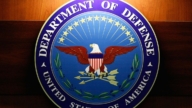【新唐人2011年5月19日讯】5月以来,大陆很多大学、院所对外的网路都出现了中断。原因是中共的网警对翻墙的网民加重了打压。但是中共在国际上连续多年攻击西方多国的政府网站,获得情报。5月16号,美国六个重要部门首次联合公布的《网路空间国际策略》被学者解读为,美国在网路战争中已经转守为攻,回击中共了。
据全球之声维护者网站(Global Voice Advocacy )近期公布的消息,大陆自5月6号开始,很多大学、院所对外的网路连接都曾经中断过。中科院发出通知说,“这两天我所网路连续发生短暂无法访问国外资源的现象,经检查确认我所部分使用者使用翻墙技术访问非法资源导致网安部门将我所IP地址临时列入黑名单。”
兰州大学网民:“我们学校就用校园网,像在这边试一些网址的话,它根本打不开,国外的网站有的可以打开,有的不能打开。校园网也打不开,我在外面网吧时候也打不开。可能是这边遮罩了吧。”
苹果公司的iPad平板电脑中“社交个人化杂志”的软体Flipboard,可以让大陆使用者从这个软体附带的脸书和推特的功能,经过翻墙去流览海外网站。但是,据Flipboard软体的总执行长麦寇尔表示,最近中共当局已经封杀了Flipboard中国用户的这两个网站。
而中共在国内加紧封锁网路资讯的同时,对海外却是另外一种做法。
美国国防部副部长威廉.林恩曾公开表示,国防部的网路每天被攻击几百万次,国防工业的网路也将被骇客窃取情报。据“维基解密”曝光,美国国务院几年前就已查明很多攻击来自中共军方。
英国、法国、德国、台湾近年来都曾公开指出,对他们政府网站的攻击和盗取资讯的骇客是来自中共方面。西方国际大型公司,如著名的投资银行摩根士丹利遭受了六个月的网路入侵,他们查出源头也是中共当局。
对于大陆当局的这些举动,美国国务院日前宣布,美国政府将拨款1,900万美元,用于研发突破中国、伊朗等独裁国家封杀互联网的技术。美国国防部官员13号说,一旦美国遭到网路攻击,五角大楼会考虑以军事回击。三天后的16号,美国白宫、国务院、司法部、商务部、国土安全局、国防部这六个重要部门,首次联合公布了《网路空间国际策略》。
国务卿希拉里表示,美国的目标是确保互联网的开放、安全和自由。司法部部长埃里克‧赫尔德说,这彰显了美国打击网路恐怖份子与罪犯的决心。华裔商务部长骆家辉认为,商务部很高兴能够参与实现这项策略。这一政策的实施需要美国18个政府部门合作,为此,美国将新成立一个“网际事务协调员办公室”。
美国著名政论家、《中国事务》总编伍凡认为,美国击毙本‧拉登后,在各方面调整了进攻防守的战略关系。
伍凡:我认为,网路空间策略实际上就是在一个新的高度,一场新的资讯战正式开始。”
新唐人记者黄丽达、赵心知、孙宁采访报导。
“Cyber War At A New Height”
Internet in many universities and research institutes
in China have recently been disconnected,
after the Chinese Communist Party (CCP)
intensified its crackdown on people
who circumvent the Firewall.
CCP attacked many Western government websites
for years. On May 16, the White House unveiled
the International Strategy for Cyberspace,
which was interpreted by scholars
as the U.S. is turning offensive
against the CCP on the cyber war.
Global Voice Advocacy said, since May 6,
universities and institutes in China
suffered Internet disconnection. A notice
from the Chinese Academy of Science said,
“Temporary Internet disconnections
repeatedly occurred in our institution these two days.
We found our IP address was temporarily
placed on a blacklist by the Public Security Bureau,
as some employees used Firewall-circumvention
technology to download some illegal materials.”
A netizen at Lanzhou University: “On our campus
network, some overseas websites can be opened,
but some others can’t. We cannot open them
in Internet cafés outside campus either.
Maybe we are particularly censored.”
Software “Flipboard” in Apple’s iPad enables users
to circumvent Firewall and visit overseas websites
via Facebook and Twitter. CEO of Flipboard,
Mike McCue, said that the CCP recently blocked
the two websites for their Chinese users.
While the CCP expedited in domestic information
censorship, it behaves quite differently abroad.
Deputy Secretary of Defense, William Lynn,
said that the DoD networks are hacked
several million times everyday for intelligence.
According to WikiLeaks, the U.S. State Department
already determined that the attacks
came from Chinese military several years ago.
UK, France, Germany and Taiwan have recently said
openly that the hackers who attacked their websites
and stole their information are from the CCP.
The 6-months cyber infiltration into Morgan Stanley
was also attributed to the Chinese regime.
To strike back, the U.S. State Department
recently announced USD19 million in funds
for developing new technologies to break through
the Firewalls of China and Iran. A DoD official said
on May 13 that once the U.S. is subjected
to cyber attacks, the Pentagon will consider
military strike-back. Three days later on May 16,
the White House, the State Department, DoJ, DoC,
Department of Homeland Security,
and DoD, jointly announced
the International Strategy for Cyberspace.
Secretary of State Hilary Clinton said
that the U.S. objective is to ensure an open, secure
and free Internet. Attorney General Eric Holder
said that this indicated U.S.’s determination
against cyber terrorism and crimes.
Commerce Secretary Gary Locke said
his Department is happy to participate
in the implementation of this strategy,
which calls for the collaboration of 18
departments. For this, a new office has been set up.
Wu Fang, a famous U.S.-based political commentator,
editor-in-chief of China Affairs magazine said,
after bin Laden was killed, the U.S. readjusted
its strategic offensive and defensive relationship.
Wu Fang: “I believe the U.S. strategy for cyberspace
is the onset of a new cyber war at a new height.”
NTD reporters Huang Lida ,Zhao Xinzhi and Sun Ning






























